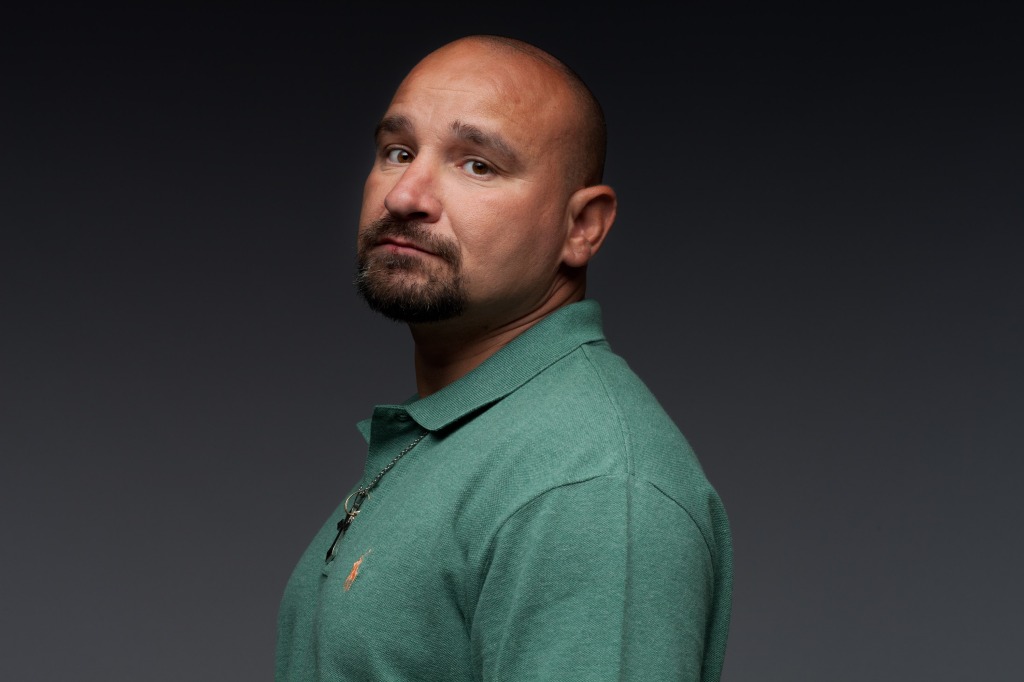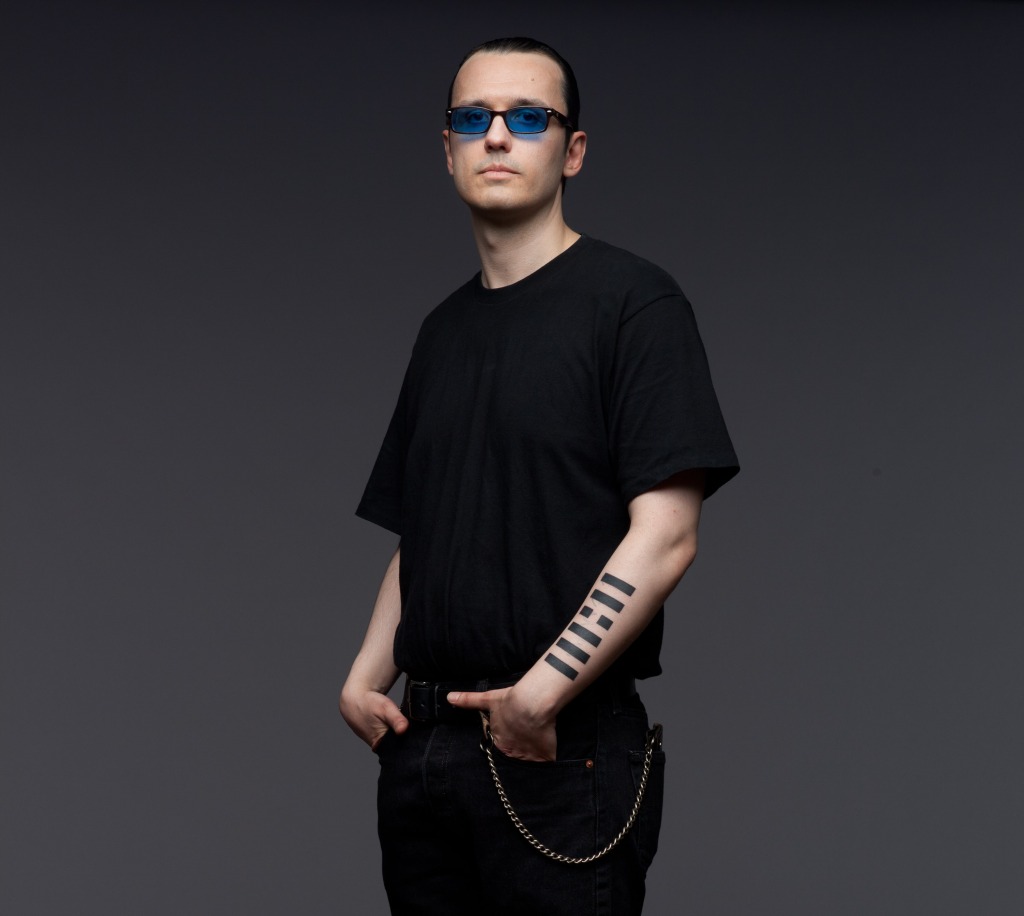“I saw firsthand how easy it is to put someone to death in our justice system. The police and prosecution, under public pressure to solve crimes, they act in their own interests, not in the interest of justice.” Director Joe Berlinger
In 1993, shortly after three eight year old boys were found murdered in West Memphis Arkansas, police arrested Damien Echols, Jason Baldwin and Jessie Misskelley and charged the three teenagers with murder. The arrest, based solely on an error-filled and police-coerced false confession extracted from 16-year-old mentally disabled Jessie Misskelley Jr., after 12 hours of questioning without counsel or parental consent.
Some 18 years later, the three were released from jail and death row, on August 19, 2011. I was called at the beginning of October to shoot the West Memphis Three for HBO. Here is the result and some of their story.
Click image to see big
THE WEST MEMPHIS THREE
There was no physical evidence connecting any of the three to the killings. At the time of the arrests, the police had only Jessie’s rambling statement and the general consensus that Damien was a weirdo. Prosecutors pointed to their black clothing and interest in heavy metal music, indications, they said, that the teens had formed a devil-worshipping cult and, inspired by the full moon, murdered the boys as a sacrifice to evil spirits.
This was not as preposterous in 1993 as it is in 2011. In the late ’80s, ritual Satanism was a mainstream panic. Respectable newspapers and television programs reported on the supposed phenomenon, and conferences of psychologists, occultists, and law-enforcement personnel were organized around the country. The specter of Satanists slaughtering innocents has long since been debunked, but in a southern town of God-fearing Baptists in the early ’90s it was not unreasonable to believe that teenagers would kill little boys as an offering to the Devil.
SHEILA NEVINS
Sheila Nevins, president of HBO Documentary Films, found a small piece on Jessie’s arrest buried deep inside the Sunday Times The second sentence in particular piqued her interest: “But others in this Mississippi River town say Mr. Misskelley and two buddies frightened them with hints of devil worship and fascination with the occult.” The eighth paragraph reported “rumors that the boys were killed and sexually mutilated as part of some ritual”
Nevins read all 633 words closely, then read them again. You’ve got the devil, she thought. You’ve got three innocent little boys who were killed. And you’ve got three teenaged killers.
She thought that all might translate into a decent film. She clipped the story and sent it by messenger to two young filmmakers, Joe Berlinger and Bruce Sinofsky,
“You want to take a trip?” she asked.
THE DIRECTORS, JOE BERLINGER AND BRUCE SINOFSKY
In 1993 Joe Berlinger and Bruce Sinofsky arrived in West Memphis, Arkansas, a community still in shock after three eight-year-old boys disappeared, then were found dead in a nearby ravine. Facing a public that was both enraged and afraid, police scrambled to make an arrest.
“I had a fundamental belief that the justice system was about a search for the truth,” Joe Berlinger says. Three films later, he knows it’s not. “It’s about who’s got money and who can tell the best story.”
I saw firsthand how easy it is to put someone to death in our justice system. The police and prosecution, under public pressure to solve crimes, they act in their own interests, not in the interest of justice. Was the basic tenet of the American legal system, the presumption of innocence, discarded in order to satisfy a community’s call for the revenge of the dreadful murders of three innocent children?
And I’ll tell you, that angers me. I want to know: why does it take three well-funded HBO documentaries, millions of dollars from celebrities, and the advocacy of thousands of people from all over the world to get justice for three people? It’s poor man’s justice. The Three were just another set of impoverished defendants, and it took the weight of celebrities and thousands of activists to level the playing field.
JESSIE MISSKELLY
Misskelley was the first of the three to be tried in 1994. He was 17 at the time. He was tried separately from the other two because he had confessed—and implicated Echols and Baldwin —
DAMIEN ECHOLS
Echols and Baldwin were tried immediately after Misskelley. Prosecutors wanted Misskelley to testify at their trial, but he refused, despite offers of a reduced sentence if he would say again that he’d seen them kill the children. Echols and Baldwin have always said they are innocent.
JASON BALDWIN
Prosecutors asked jurors to sentence both to death. Jurors complied with regard to Echols, who was the oldest of the three, at 18, and the accused ringleader. Baldwin, 16, was sentenced to life in prison. Shortly before the trial, prosecutors had offered not to seek the death penalty against Baldwin, if he would say he’d seen Echols kill the boys. Baldwin refused.
Along with all the press was their families and girlfriends that had championed them to the nation while being incarcerated.
Damien had married a landscape architect named Lorri Davis who’d written to him after seeing the first film. She recruited more celebrities, raised more funds, hired more investigators, who was unwilling to be photographed.
The night before he entered his Alford plea, Damien was in a holding cell with his lawyers and his publicist, a New Yorker named Lonnie Soury. He looked awful, pale and gaunt, and his lips were an unnatural blue. He’d known about the deal for almost two weeks, and he’d barely slept at all since. “He said the last couple of weeks were worse than the first eighteen years,” Soury remembers. “And I’m thinking, This guy’s not gonna make it through the night.”
Damien asked Stephen Braga if anything could go wrong.
Soury thought, Anything could go fucking wrong. He kept his mouth shut.
“No, Damien,” Braga gently told him. “Nothing’s going to go wrong.”
“I really do believe,” Damien told the filmmakers in 2009, “these people would have gotten away with murdering me if it would not have been for what you guys did, for being there in the very beginning and getting this whole thing on tape so the rest of the world sees what was happening.” He was right.
The fight to have the guilty verdict reversed would require that the judicial system, intrinsically bureaucratic in nature, look within itself and acknowledge its own weaknesses and shortcomings. Any admission of its own failure will only occur under extreme public pressure and outrage at the injustice which has occurred. It takes time for such a process to occur, statistically at least ten years. Jessie and Jason have a lifetime, Damien’s time could run out before this slow process is complete .
On August 19, they pleaded guilty to murders they swear they did not commit, and, in exchange, a judge sent them home. Their release had nothing to do with right or wrong, with guilt or innocence, and least of all with who killed those boys more than eighteen years ago. It was an act of legal expediency, a way to let three innocent men out of prison without the bother and embarrassment of actually exonerating them.










Wow Love these shots. I can really feel the presence of these guys
Why isn’t Lorri in a photo with Damien? The other gals are with “their men.”
Did she leave him yet??